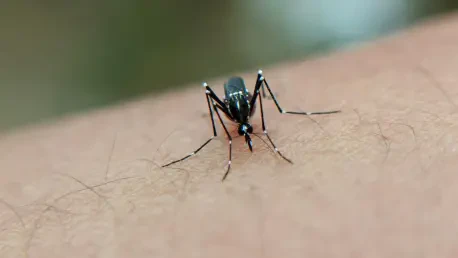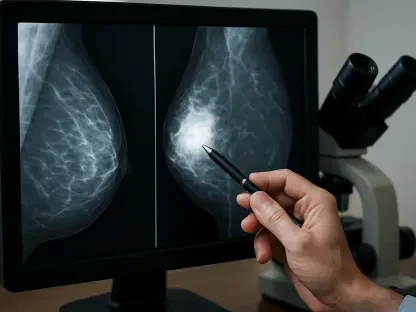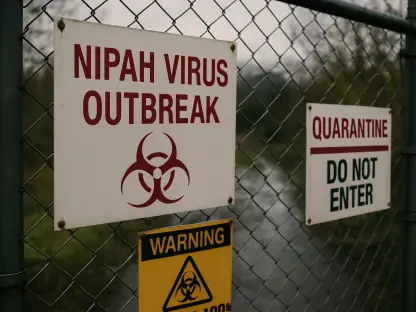The situation in Pinar del Río, Cuba, has become increasingly precarious as health risks surge due to a dengue outbreak affecting municipalities such as Guane, Sandino, Los Palacios, Pinar del Río, and San Luis. Current circumstances have culminated in San Luis being officially designated as an active transmission zone. This outbreak is exacerbated by concurrent viral respiratory diseases, including influenza and respiratory syncytial virus. As these illnesses manifest through various flu-like symptoms, the threat to the region’s public health grows more complex and urgent.
Intensified Vector Control Efforts
Strategic Implementation of Health Measures
In response to the escalating dengue threat, health officials have strategically intensified their control measures. A notable approach adopted by authorities is the implementation of fever blockades, which are crucial in the initial 24 to 48 hours following detection. This proactive strategy aims to limit the spread by quickly identifying and isolating potential cases. Moreover, adulticide fumigation is actively conducted in areas confirmed as active transmission zones, serving as a significant intervention to reduce adult mosquito populations, thereby curbing further spread of the virus.
Given the findings that indicate around 83% of breeding sites are located in household low water tanks, authorities have increased their focus on these areas. Additionally, the persistent application of abate—a larvicide with enduring effectiveness despite multiple water changes—is emphasized, alongside improved sanitation measures. These concerted efforts underline the pressing need for comprehensive practices that significantly enhance water sanitation and food safety, ultimately reinforcing the resilience of public health defenses against mosquito-borne diseases.
Addressing Environmental Challenges
The effectiveness of such interventions, however, faces significant hurdles due to environmental conditions conducive to mosquito breeding. High temperatures combined with heavy rainfall present ideal circumstances for the proliferation of mosquito populations. Additionally, fuel shortages complicate the widespread fumigation efforts, limiting the reach of fumigation campaigns. Despite these challenges, it is important to note that no critical dengue cases have been documented so far, providing a glimmer of hope amidst rising concerns.
Authorities are vigilantly monitoring the spread of identified prevalent dengue serotypes 3 and 4. The current situation demands a heightened level of scrutiny and strategic deployment of resources to prevent the rise of more severe cases. Such vigilance is crucial in managing the ongoing dengue transmission within a landscape already complicated by vector infestations and insufficient public amenities.
Community and Authority Collaboration
Cooperative Public Health Strategies
The resurgence of dengue transmission, compounded by a vector infestation crisis, underscores the urgency for robust preventive strategies. It necessitates an unwavering partnership between residents and health authorities. Collaborative approaches are essential, requiring active participation in preventive measures by the community, facilitated by the guidance and support of health officials. Public health campaigns aim to educate residents about the importance of eliminating breeding sites, employing proper water storage practices, and identifying symptoms for early intervention.
Simultaneously, authorities are enhancing epidemiological monitoring to swiftly detect transmission trends, enabling timely responses to evolving situations. This strategic focus on surveillance ensures that any emerging threats are addressed promptly, helping to minimize the risk of further outbreaks. Such actions reflect a comprehensive framework that prioritizes community engagement and informed decision-making in disease prevention efforts.
Coordinated Efforts for Future Resilience
Pinar del Río in Cuba is facing severe health challenges due to a rising dengue fever outbreak, hitting municipalities like Guane, Sandino, Los Palacios, Pinar del Río, and San Luis particularly hard. San Luis has now been declared an active transmission area, alerting residents to the heightened risk. This outbreak complicates a situation already burdened by other viral respiratory illnesses, such as influenza and respiratory syncytial virus (RSV). These illnesses together create a complex public health crisis, presenting with symptoms similar to the flu, like fever, headaches, and muscle aches. The convergence of these sicknesses compounds the strain on healthcare services in the area, posing significant challenges to medical professionals attempting to manage and contain the diseases. Health authorities are sounding the alarm, emphasizing the urgent need for enhanced preventive measures and community awareness to curb the spread of these viruses and safeguard the public’s health.









